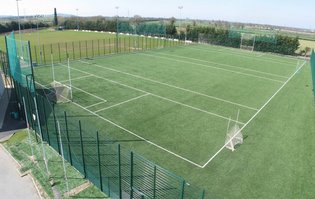
Fine Gael (the largest party in the current coalition government) proposes more physical education at primary school level and its introduction as a leaving certificate (high school) subject. They claim they will work with the Irish tourism promotion board to develop tourism in cycling, sailing, running and in adventure sports. They commit to an annualised round of sports capital grants. The party promises to produce a national sports strategy but there are no specific elements of that measure, though greater public use of the national sports campus facilities is suggested.
The Labour Party (the smaller party in the current coalition) always proposes a national sports strategy, though they indicate that, as part of that strategy there will be a specific sports bidding entity to facilitate bidding for events across all sporting organisations. The sports policy will also include elements to support sports tourism. In relation to sports capital grants they indicate that they will prioritise applications that are jointly submitted by sports clubs and schools to incentivise the facilities being available more generally to the public. They suggest a National Physcial Activity Plan which will have an objective to support the Special Olympics and increased participation in sport by females.
The Fianna Fail policies are framed largely in the context of improving health outcomes through encouraging physical activity. The plan around improving health includes taxes on sugar sweetened drinks, healthy eating programmes in schools, and strengthen local authorities’ powers to compulsorily purchase land for recreational use. The party promises to ‘phase out’ alcohol companies’ sponsorship of sporting events. They indicate that there will be an audit of NAMA properties to identify those suted for sports and recreation use and that “major construction project levies should integrate a contribution to locals sports clubs, such as land or monetary contributions”. The party will change the Sports Capital Grants system to allow funding of Community Centres, providing services to elderly social groups. It’s unclear if this will be mean a reduction in the money available to sports clubs.
Sinn Fein’s commitments on sport are contained in the section on building communities. The manifesto says they “ see sport as having a vital role in developing communities and want to ensure that investment is made in recreational sport first and foremost at community level; and that all sporting bodies, particularly at professional level, are properly funding and governed.” There is an unquantified commitment to invest in sport and another commitment to invest €42 million in sport at community level. This is in a section headed an all-island approach.
Renua Ireland is the only party to mention specific sports in their election manifesto. They have sections dedicated to Horse and Greyhound Racing and the Horse Sport Industry. To support these industries they propose increasing the betting levy from 1% to 3% and ringfencing the income for the sports. They state that “a senior level Department unit should be created to facilitate and drive government policy on the [thoroughbred] sector”. With specific reference to the showjumping, eventing and dressage sectors, they propose a four year tax incentive scheme “to attract investment in the sector, with a clear goal of garnering medals at the Tokyo Olympic Games in 2020”.Interestingly the policy also states in the section on the tax system, that “the only circumstance in which RENUA Ireland believes reliefs should be permissible is a situation where appalling economic planning has led to a market failure”.
The Social Democrats, a new party in this election, do not have any mention of sports in their manifesto. There were no mentions of sport in the manifesto of People Before Profit, and I couldn’t find a manifesto for their allies in the Anti-Austerity Alliance.
 RSS Feed
RSS Feed